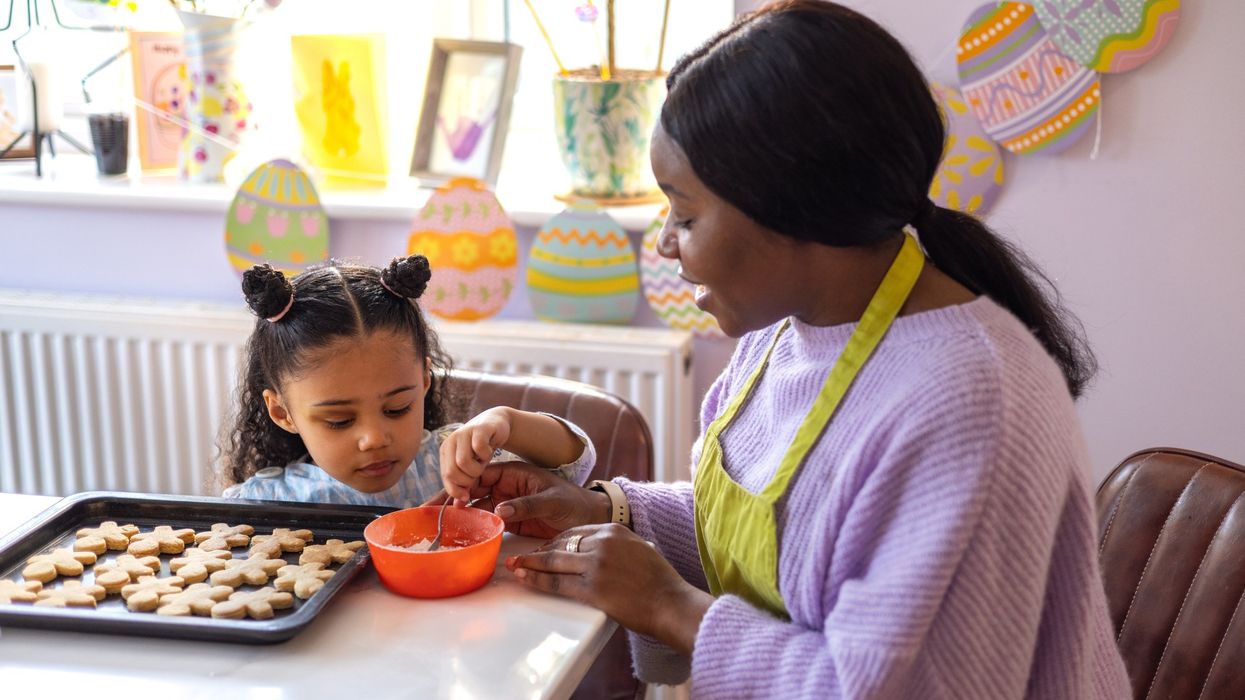Easter is one of the most important celebrations in the Christian calendar, and across the globe, it’s marked with a variety of traditional foods. While customs differ by country, food plays a central role in how families come together to honour the occasion. Here are nine traditional Easter foods from different parts of the world.
1. Hot Cross Buns – United Kingdom
A classic Easter treat in Britain, hot cross buns are sweet, spiced buns made with dried fruits and marked with a white cross. Traditionally eaten on Good Friday, they symbolise the crucifixion of Jesus. Today, they are enjoyed throughout the Easter period, often lightly toasted and spread with butter.
2. Tsoureki – Greece
In Greece, Easter Sunday is celebrated with Tsoureki, a sweet, braided bread flavoured with unique ingredients like mahleb and mastic. It is often decorated with red-dyed eggs that symbolise the blood of Christ. This soft, aromatic bread is a staple in Greek Easter households.
3. Pashka and Kulich – Russia
Russian Easter features Pashka, a dessert made from sweetened curd cheese and shaped into a pyramid, often decorated with religious symbols. It’s served with Kulich, a tall, cylindrical bread similar to panettone, filled with raisins and topped with icing and sprinkles. Both are blessed by a priest before the Easter meal.
4. Colomba di Pasqua – Italy
Italy’s answer to the Christmas panettone, Colomba di Pasqua is a dove-shaped cake made with flour, eggs, sugar, candied peel, and topped with almonds and pearl sugar. It’s a soft, airy treat served across Italian households as part of the Easter Sunday feast.
5. Fanesca – Ecuador
In Ecuador, Easter is celebrated with Fanesca, a thick soup made with salt cod, pumpkin, beans, and grains. It’s traditionally made only during Holy Week and incorporates 12 different types of beans and grains to represent the 12 apostles. Fanesca is deeply symbolic and typically shared with family and neighbours.
6. Mämmi – Finland
A distinctive Easter dessert in Finland, Mämmi is made from water, rye flour, and malted rye. Its dark colour and pudding-like texture might not appeal to everyone, but it remains a nostalgic favourite. Served cold with cream and sugar, it’s a cherished seasonal dish.
7. Capirotada – Mexico
Capirotada is a sweet and savoury bread pudding served in Mexico during Lent and Easter. It’s made with layers of bread, cheese, raisins, cinnamon, and a syrup made from piloncillo (unrefined cane sugar). This comforting dish blends flavours and symbolism, with each ingredient said to represent elements of the Passion story.
8. Pão de Ló – Portugal
This traditional Portuguese Easter cake is a light and fluffy sponge, sometimes with a slightly runny centre depending on the region. Made with just eggs, sugar, and flour, Pão de Ló is simple yet celebratory, often served as the centrepiece of Easter Sunday dessert tables.
9. Butter Lamb – Poland
Although not eaten in large quantities, the butter lamb is a Polish Easter tradition shaped from butter to resemble a lamb, symbolising Christ. It sits proudly on the Easter table alongside hard-boiled eggs, breads, and meats, and while it may be more decorative, it still plays an edible role in the festivities.
From spiced buns to festive soups and symbolic desserts, Easter food traditions reveal the deep connection between culinary heritage and faith. While ingredients and preparation vary widely, the shared purpose remains—gathering around food to honour one of the most significant holidays in the Christian world.





